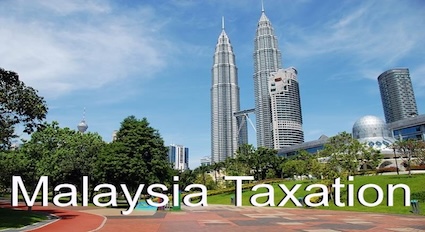No middle ground to stupid taxes

Malaysia’s tax system has become a mess of ad-hoc taxes most of which are legacies from previous governments. The time is ripe for a bonfire of taxes and a simpler system for everyone.
Geoffrey Williams, FMT
Malaysia will see a slew of taxes and tax hikes this year that are expected to take at least RM8 billion from the rakyat.
This raises serious concerns in the current slow economic environment.
In January we had the low-value goods tax (LVG) which will raise around RM200 million. Then there is the increase in the digital goods tax (DGT) from 6% to 10%, enabling it to now raise RM700 million, up from RM428 million in 2020.
The capital gains tax (CGT), imposed from this month, is expected to yield about RM800 million based on share ownership transfer data from the ministry of finance (MoF).
The high-value goods tax (HVG), which starts in May, has the potential to raise RM800 million to RM900 million at a 10% rate on all luxury goods but the exclusions announced mean it will raise a fraction of this.
The biggest hit from March is higher sale and services tax (SST) with tax on services rising from 6% to 8%. This is expected to take RM5.5 billion out of our collective wallet.
The slowing economy and the extra cost of living burden on the rakyat and businesses, especially MSMEs, have raised calls for the government to postpone the tax hikes. Of course this is something we must all support even if it is unlikely to happen.
Most of the new taxes are terrible ideas. The HVG and LVG taxes distort the market and add a huge collection headache on LHDN. They raise so little revenue that it is barely worth the trouble of implementing them.
The objective of the LVG is to “level the playing field” between online sellers inside and outside Malaysia. In other words it will “rig” the market to help local businesses charge higher prices in the face of cheaper, better online deals from overseas.
Of course businesses love this idea because it props up bad business models but it will harm consumers, especially those on low-incomes. It artificially forces up the prices of goods that low-income people want to buy and clearly makes life harder for them unnecessarily. It is a cruel tax in that sense.
The HVG is supposed to tax the rich and feed the poor but only the super-rich will be hit and they can mostly finds ways to avoid the tax anyway. It is an ineffective tax in that sense.
For SST we have seen multiple exclusions reflecting stakeholder concerns on traditional and Chinese medicines, logistics services, food and beverage and home maintenance.
These exclusions distort the market even more and the cascading effect of SST will still see prices passed on across a wide range of even exempt products and services.
The government should abandon these taxes altogether. They are a typically bad legacy from previous administrations.
There should be a full review of the taxation system now because it is a mess of ad-hoc taxes for ill-defined purposes that is inefficient in raising revenue and is causing market distortions.
For example, if you want to raise revenue quickly a 1% tax on electronic payments would raise RM15 billion efficiently with no market distortions. It would be easy to collect and no one would notice it.
This is enough to finance a RM430 per month universal basic income to every B40 household for example or enough to make higher education basically free for 10 years. The LVG and the equally stupid luxury goods tax could never do this.
There is no middle ground to stupid taxes. The government should abandon these legacy taxes and introduce a new reform agenda for taxation aimed at creating a low-tax, low-regulation haven for business in Malaysia.
Hopefully we will see this in 2024 and in Budget 2025.

